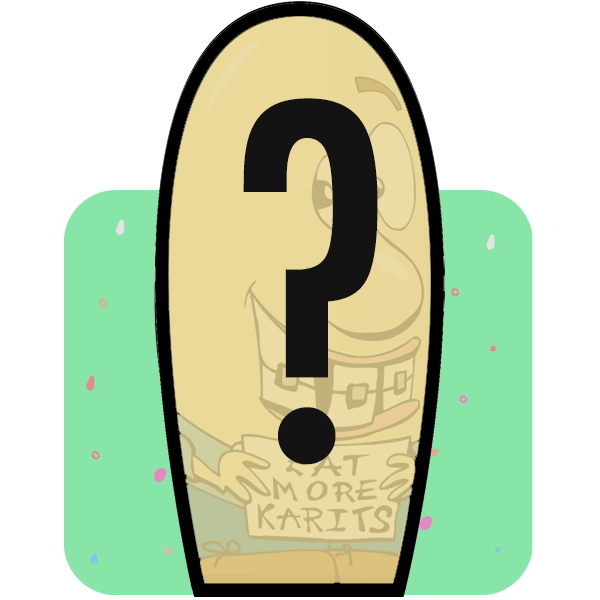I have to go back and tell him,” said Bobby, leaning over the arm of the stadium seat.
“What! Are you nuts?” Jeremy exclaimed. “He’ll never know. It’ll be collected tomorrow with the garbage.”
“I don’t care. I’ll know,” said Bobby.
“He’ll fire you,” Jeremy growled.
“I don’t care. I have to go tell him.” Bobby stepped out into the aisle.
Jeremy followed him up the steps. “At least wait till the end of the baseball game.”
“It’s practically over. I’m going now. You don’t have to come if you don’t want to.”
“I’m coming, but only to talk some sense into you,” Jeremy said, shaking his head.
Out in the street the two boys headed toward the bakery where Bobby had a part-time job. It was a great job for a teenager, one hour a day, five days a week. The job didn’t interfere with anything.
“I don’t know how I could do such a stupid thing,” Bobby moaned. “It’s such a simple job. Mix up a batch of dough, put it in four 30-gallon cans to let it rise, and you’re done.”
“Sure, it’s a simple job. It’s just that we were talking and you didn’t count the scoops of flour right.”
“I know that, but each scoop has 13 pounds of flour in it. When I put in the extra scoop, it made the whole batch 65 pounds. No wonder the mixer was hardly turning. The eight gallons of water didn’t make it wet enough to mix. Do you know how much money we threw out in the garbage? I hope it didn’t hurt the mixer.”
“It didn’t hurt the mixer. You made the whole batch over again, and it came out OK, didn’t it?” argued Jeremy.
“Yeah, but how do you know it didn’t hurt it in some way?”
“I don’t know, but what’s the difference? Nobody knows what happened except you and me. You ruined a batch of bread dough, and we took it out back and threw it into the garbage bin. We covered it up with a bunch of garbage so nobody could see it. When the garbage collectors come, they’ll dump the bin in the truck, and nobody will know the difference.”
“I can’t just let it go at that, Jeremy. I don’t know how much all that stuff that we threw out was worth. I don’t know if something should be done to fix the mixer.” Bobby stepped up his pace. “I do know I have to tell Mr. Connors what I did.”
“I’m telling you, he’ll fire you,” said Jeremy. “I thought you were saving money to buy a car when you’re 17. Your father said he’d help if you saved your share. That’s only a couple of years away, you know. Where are you going to get another job like this?”
“You’re right, it is a great job,” Bobby said. “The pay is great too. I make more per hour than my friends who work at the fast-food places.”
Jeremy grabbed his friend’s arm. “It‘s not worth it. Nobody will ever know. Come on, let’s go home and forget about it. Mr. Connors probably isn’t there yet, anyway.”
“Yes, he is. He comes in about 9:30 each evening, because that’s when the dough has risen enough to start making the bread. It’s almost 10:00,” Bobby said, looking at his watch. “I’m sorry, Jeremy, I just have to go and tell him.”
“Well, I still think you’re nuts. I have to go away with my parents for the weekend. I’ll see you in school on Monday.”
Jeremy smacked his friend’s shoulder. “Goodbye, car,” he said, shaking his head.
Jeremy walked down the side street, and Bobby continued on to the bakery. The lights were on. He looked through the window and saw Mr. Connors standing by the workbench.
Bobby watched as the baker cut pieces of dough, punched them with the heel of his hand, and formed them into loaves. He then placed the loaves into bread pans, ready to go into the oven.
“Hi, Mr. Connors,” Bobby said as he swung open the screen door. It was a warm summer night. The heat from the oven surrounded Bobby like a blanket. Beads of sweat gathered on his top lip.
“Oh, hi, Bobby. What brings you around this late at night? I thought you were going to the baseball game tonight.”
“I did, Mr. Connors, but something happened tonight, and I had to come and tell you about it.”
“Oh, what’s that, Bobby?” Mr. Connors stopped forming the loaves and looked straight at Bobby.
Bobby told his boss the whole story of how he had miscounted the scoops of flour and ruined the whole batch. He told how he and Jeremy had taken it out and thrown it in the dumpster and covered it with garbage so Mr. Connors wouldn’t see it.
“Why are you telling me now, Bobby, if you covered it so I wouldn’t see it?” asked Mr. Connors.
“I just couldn’t lie to you like that, Mr. Connors. I’m sorry about wasting all that flour and stuff. You can take it out of my pay. If there isn’t enough there, I’ll bring the rest from what I’ve been saving at home.” Bobby was really sweating now, but not because of the summer heat.
“Bobby, I want you to come out back with me for a minute,” said Mr. Connors. He took Bobby out the back door and over to the garbage bin.
“Bobby, do you remember what I told you yeast does to bread dough? Take a look at the dumpster.”
There in the dumpster the dough had risen and was almost to the top! Some of the garbage that Bobby and Jeremy had used to cover the dough had slipped off onto the ground.
“Then you knew all along what had happened?”
“Well, not exactly, but I had a pretty good idea. If anything like that happens again, Bobby, call me up, and we’ll figure something out. In this case we could have added more of each of the ingredients and made a bigger batch.”
Mr. Connors put his arm around Bobby’s shoulder, and they went back into the bakery.
“You said next time, Mr. Connors. Aren’t you going to fire me?” Bobby asked.
“Bobby, there is nothing wrong with making a mistake. There is something wrong in being dishonest. I was upset at first because I thought that you weren’t going to tell me and that I couldn’t trust you. Your coming here tonight makes everything OK. Now, you go home and get a good night’s sleep. I’ll see you on Monday with your whole pay. We don’t pay for mistakes here—we learn by them.”
“Thanks, Mr. Connors. I’ll be really careful from now on,” Bobby said. “See you on Monday.”
It isn’t so hot after all, thought Bobby. As a matter of fact, it was a beautiful night—one of the nicest he could remember.
Illustrated by Bruce Day


